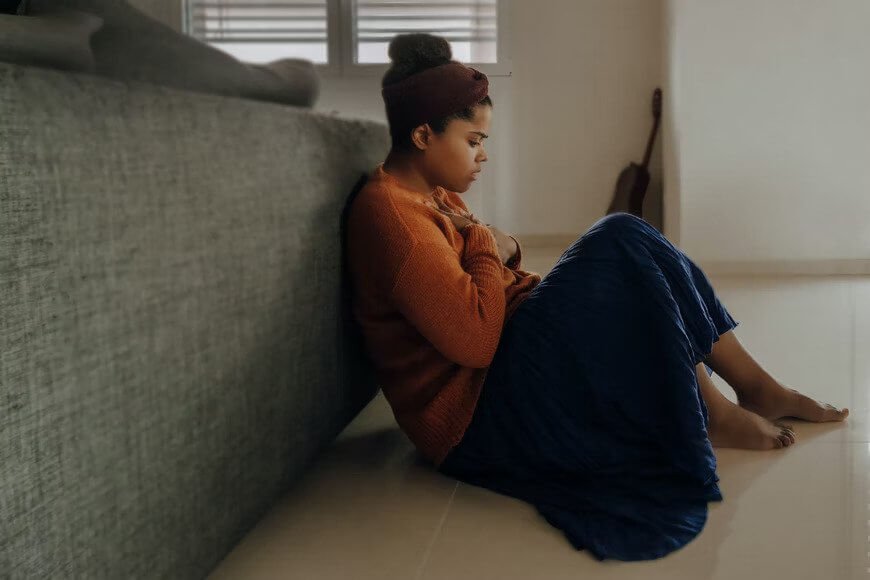Anxiety disorder can be treated and managed. First, it would need to be diagnosed. If you or someone you know may have it, this guide will go over the ten signs that it might exist.
You may not experience all of these signs. But positively identifying a few of them may confirm it. However, it can be officially diagnosed by a mental health professional.
If you need help regarding anxiety disorders, Epiphany Wellness will have more information. Now, let’s dive right in and discuss what you need to look for in anxiety disorders.
- Trouble sleeping
One of the more common issues with anxiety disorder is having trouble sleeping. It may take you more than a half hour to fall asleep. Or you may be waking up and having trouble going back to sleep.
This will occur on a regular basis and it can signal potential anxiety disorder. This may be confused with the restless nights that can occur from time to time. However, this regular occurrence may raise concerns.
But this needs to be confirmed along with some of the other signs we will be mentioning below.
- Headaches and muscle aches that are consistent
Anxiety disorders not only affect you mentally, but also physically. One such indication will be the amount of headaches and muscle aches that will occur. This can be signs of tension and stress.
Especially when it’s tied to events that may occur in the future. This coupled with the lack of sleep can be sure signs that you may have an anxiety disorder. This tightness and aching may happen all throughout the body.
This is not one of the only signs to watch that may be related to your physical health.
- Heavy breathing and rapid heart rate
You may notice your heart rate will be faster than normal. This may also be accompanied by heavy breathing. You may also be dealing with a series of issues including sweating, raised blood pressure, a feeling of being smothered, faiting, or feeling hot (like a fever).
This may sound like a scary experience. But this can be piled on by the stress and worry of what might be to come.
- GI issues
GI issues can also play a role in providing you signs that tell you ‘fight or flight’. For example, you will feel discomfort in your stomach. It may be akin to a stomach ache or even a gassy-like feeling.
You’ll feel some distress in your digestive system. This can be due to the fact that the amygdala can pick up on ‘danger’. So you act on that by going into survival mode (fight or flight).
At the same time, cortisol (the stress hormone) and adrenaline will be running through your body. Meanwhile, your ‘rest and digest’ system will be temporarily shut down.
- You tend to avoid people, places, or things
You’ll tend to avoid making contact with people. This includes those you may know well like your friends or family. This can also lead you to avoiding social activities or attending such events.
You may feel nervous about negative things that could happen. You may brush off socializing and say that you’re tired or use some other rationalization. You may even put off doing things that you often enjoy or have to do for the day (chores, work, etc.).
You may feel like you’ll be judged or criticized by friends, family, co-workers, even your boss. If this becomes a recurring issue, you may need to have an evaluation done for anxiety disorder.
- You’re seeking a second opinion all the time
You may be taking a certain action or making a decision about something. But you feel that someone else’s opinion may be a bit more valuable. You may ask them whether or not you made the right decision.
You may be thinking that you acted on something without knowing enough information. You worry about doing something wrong and need reassurance. Constant occurrences of this can be a sure sign of anxiety.
- You’re tired all the time
This comes as no surprise. You may be struggling to sleep at the outset. So this is what happens when you are not getting it.
Without quality sleep, your body may not work as normal. You’re fighting to stay awake when you need to. You may even be tired for no reason at all.
You may want to observe how you’re doing throughout the day. Especially when you are dealing with regular occurrences of not sleeping well.
- You’re reliving a traumatic event
A traumatic event can trigger anxiety. It can also be associated with another mental disorder such as PTSD. At the same time, you may be dealing with panic attacks, worry, and physical tension.
Your anxiety can be triggered by memories or flashbacks of traumatic events that have happened. You may be diagnosed with both anxiety and PTSD. If you have not, schedule an examination with a professional to confirm this.
- You suffer from a phobia
If you suffer from specific fears or phobias, it can trigger anxiety. This can also feature other symptoms such as sweating, trembling, and nausea. These phobias can include closed spaces, leaving your home, socializing with people, and other legitimate fears you may have.
These phobias can be diagnosed by a professional, if need be.
- Panic disorder
Anxiety disorders can also be associated with others. Panic disorders can be one of them. One of the major issues that happen with this are panic attacks that can be extreme at times.
Also included with these panic attacks include shortness of breath (which may include choking). You may also be dealing with heart palpitations or even a pounding feeling. The extreme occurrences may happen from time to time.
You may have already been diagnosed with a panic disorder. If you haven’t yet, make sure you do through a professional. You may also have anxiety that could go along with it.

